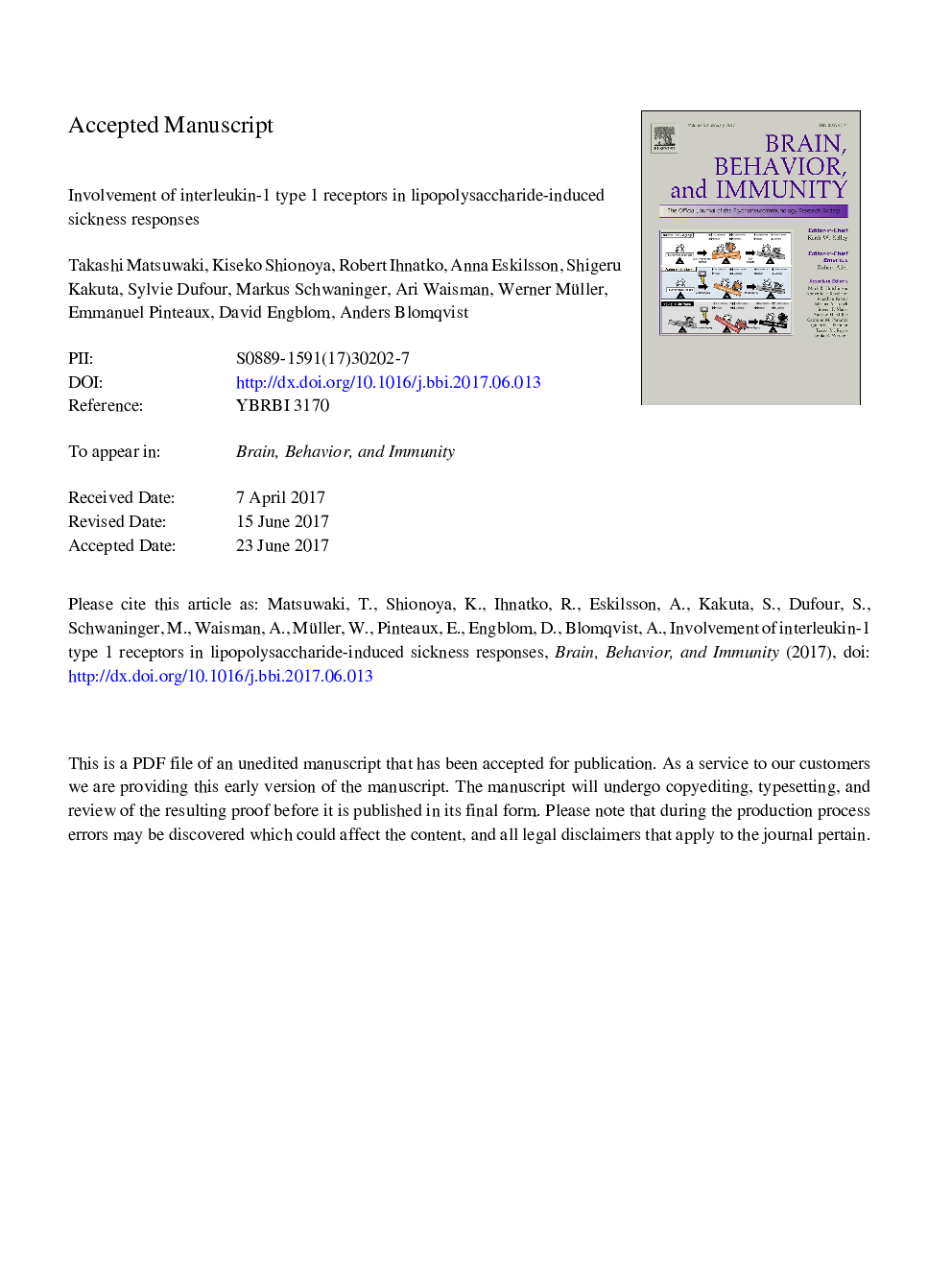| Article ID | Journal | Published Year | Pages | File Type |
|---|---|---|---|---|
| 7279811 | Brain, Behavior, and Immunity | 2017 | 33 Pages |
Abstract
Sickness responses to lipopolysaccharide (LPS) were examined in mice with deletion of the interleukin (IL)-1 type 1 receptor (IL-1R1). IL-1R1 knockout (KO) mice displayed intact anorexia and HPA-axis activation to intraperitoneally injected LPS (anorexia: 10 or 120 µg/kg; HPA-axis: 120 µg/kg), but showed attenuated but not extinguished fever (120 µg/kg). Brain PGE2 synthesis was attenuated, but Cox-2 induction remained intact. Neither the tumor necrosis factor-α (TNFα) inhibitor etanercept nor the IL-6 receptor antibody tocilizumab abolished the LPS induced fever in IL-1R1 KO mice. Deletion of IL-1R1 specifically in brain endothelial cells attenuated the LPS induced fever, but only during the late, 3rd phase of fever, whereas deletion of IL-1R1 on neural cells or on peripheral nerves had little or no effect on the febrile response. We conclude that while IL-1 signaling is not critical for LPS induced anorexia or stress hormone release, IL-1R1, expressed on brain endothelial cells, contributes to the febrile response to LPS. However, also in the absence of IL-1R1, LPS evokes a febrile response, although this is attenuated. This remaining fever seems not to be mediated by IL-6 receptors or TNFα, but by some yet unidentified pyrogenic factor.
Related Topics
Life Sciences
Immunology and Microbiology
Immunology
Authors
Takashi Matsuwaki, Kiseko Shionoya, Robert Ihnatko, Anna Eskilsson, Shigeru Kakuta, Sylvie Dufour, Markus Schwaninger, Ari Waisman, Werner Müller, Emmanuel Pinteaux, David Engblom, Anders Blomqvist,
